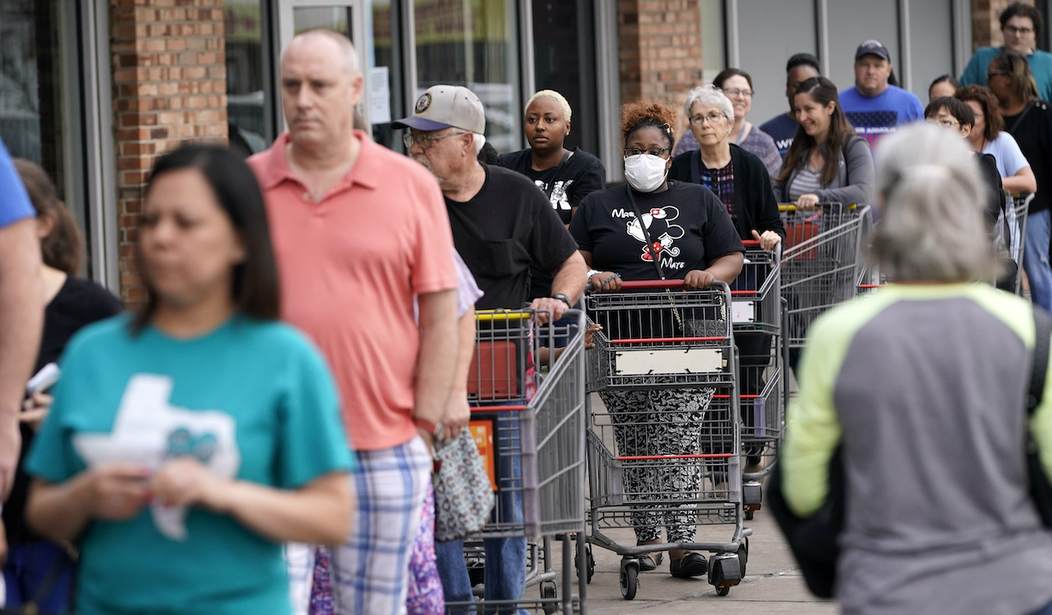While proposals to increase the minimum wage to $10 and $15 are being debated at the federal level, local legislatures in cities across the U.S. are taking initiatives to pass their own wage increases for grocery store workers during the Covid-19 health emergency.
In the early months of the pandemic, grocery stores were giving their employees small temporary wage increases and bonuses known as ‘hero pay’ to subsidize the risks these employees were taking when showing up to work. Now, city governments across California and Washington have passed mandates to make this idea stick at least for the duration of the pandemic. Ordinances in Seattle and Long Beach now require a $4 per hour temporary wage increase for grocery store workers, while similar mandates in Oakland and Los Angeles require an even higher increase of $5 per hour.
By artificially mandating wages for grocery store employees, city officials are not doing workers any favors. The pandemic has already added extra operational costs to businesses that must be paid to keep customers safe. New minimum wage requirements increase labor prices substantially for grocery chains, and companies have been forced to make big adjustments due to their very slim profit margins.
As mandated wage premiums for grocery store workers are spreading, so too is the news of store closings that are following these increases. In Seattle, a Kroger-owned supermarket chain named Quality Food Centers (QFC) announced it would be closing two of its locations in response to the new ordinance.
For the stores that can afford to remain open in Seattle, the ordinance will still have a huge impact on their employees. Workers are guaranteed to see their hours reduced due to increased costs on their employers. A National Bureau of Economic Research study reviewed the effects of the 2016 minimum wage increase in Seattle from $9.47 to $13 an hour found that the hours employees worked fell by more than the increase in wages. Because of the decrease in hours, workers were making on average $74 less than they were before the wage increase.
Recommended
Similarly, two Kroger stores in Long Beach were also closed because of the temporary wage increase. In a statement, the California Grocers Association explained that the grocery stores cannot absorb these new costs and many will have to choose between passing them on to consumers, cutting employee hours, or closing their doors.
Another grocery chain, Trader Joe’s, announced it would be fulfilling the temporary $4 per hour increase nationwide, but at the cost of its permanent $0.75 mid-year raise for its employees. The company’s executives stated that further action could be taken across the country if cities choose to raise premiums above $4 like Los Angeles and Oakland have, or if the wage hikes remain after the pandemic is over.
Supporters of ‘hero pay’ argue companies can afford to pay workers more especially since stores’ average profit margins doubled during the pandemic last year. Yet, a report by Capitol Matrix Consulting found that a $5 per hour wage premium would increase these stores overall costs by 4.5 percent, which is two times higher than the 2.2 percent profit margin of a typical grocery store in 2020 and three times higher than the 1.4 percent rate in 2019. While these companies are making profits during the pandemic, ‘hero pay’ premiums would more than erase profits.
The report also concluded that implementing a $5 per hour premium statewide in California would cost an additional $4.5 billion in yearly grocery costs, or an extra $400 per year for a family of four if grocery stores chose to raise prices. If store owners chose to reduce labor costs instead, the proposal would cost 66,000 grocery jobs statewide.
If lawmakers want to help grocery store workers, they should not be putting undue pressure on employers to pay workers more than they can afford, especially during these trying times. Contrary to what lawmakers hope to achieve with these mandates, ‘hero pay’ ordinances only harm the ever workers they were designed to help.
Derek Hosford is a policy analyst at the American Consumer Institute, a nonprofit educational and research organization. For more information about the institute visit www.TheAmericanConsumer.org or follow us on Twitter @ConsumerPal.
























Join the conversation as a VIP Member